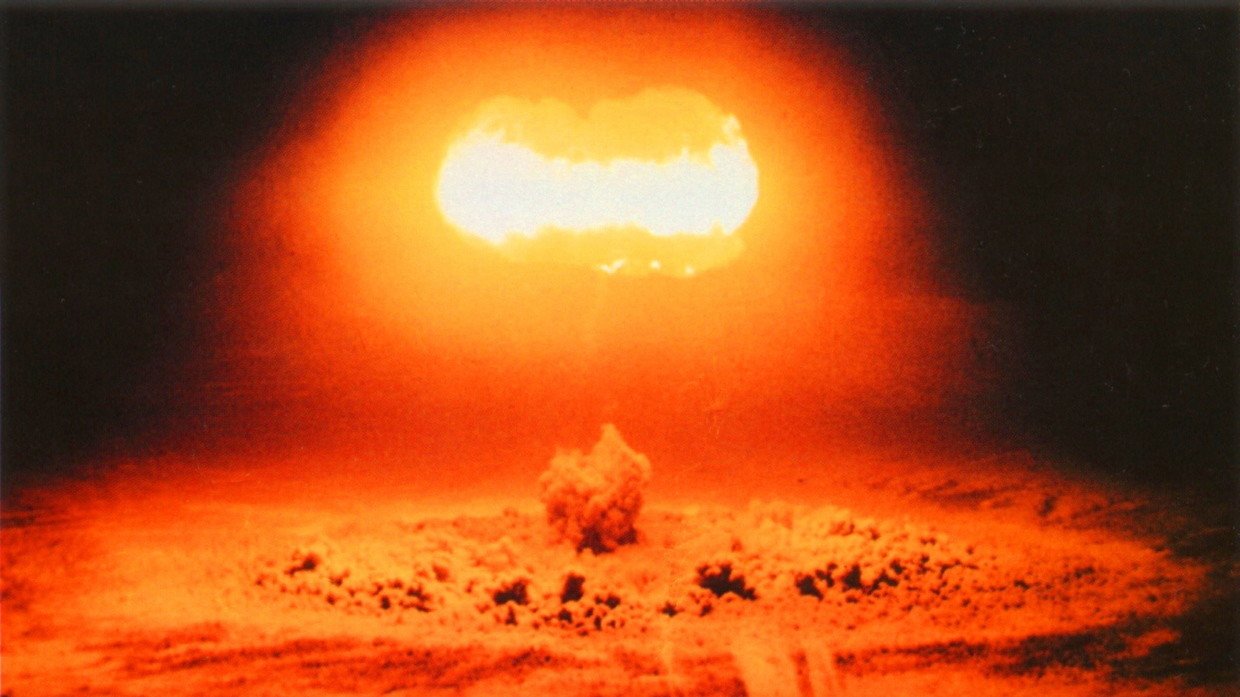US authorities considered whether to carry out a "rapid" nuclear test – the first for almost three decades – to use as a bargaining chip in dealing with Russia and China, according to media reports.
The proposal to cause a controlled nuclear explosion is "very much an ongoing conversation," a high-ranked official within the administration of Donald Trump told the Washington Post on Saturday.
It was assumed that a "rapid test" could prove useful in making Moscow and Beijing negotiate a nuclear-weapons-related trilateral deal with Washington, the paper's sources said.
The rationale behind the United States holding its first test of this kind since 1992 involves a convenient allegation that Russia and China have resumed testing low-yield nuclear munitions. So far, however, there is no publicly available evidence substantiating the claims, the Post itself noted.
The plan was apparently floated on May 15, but it was ultimately decided to shelve the resumption of nuclear testing for now.
“There are still some professionals in the room who told them this is a terrible idea, thank God,” an unnamed congressional aide told the Guardian. The scheme, dismissed as “unworkable and dumb,” received critical acclaim from the National Nuclear Security Administration and State Department, which refused to come “on board.”
Putting nuclear devices on trial is generally prohibited under the 1996 Nuclear Testing and Comprehensive Test Ban Treaty, signed by 184 nations. Russia ratified the accord four years later. The US didn’t do so but chose to adhere to its moratorium on nuclear tests, which is still in force for the time being.
Washington has already rid itself of two vital arms control agreements in recent years. In 2019, the Trump administration quit the 1987 Intermediate-Range Nuclear Forces Treaty with Russia, which banned short- and medium-range ballistic missiles. The US cited alleged violations by Moscow, a claim that Kremlin denied, pointing out that ditching the landmark accord was a pre-planned action by the US administration.
Also on rt.com Trusted NATO ally Germany set to abide by Open Skies Treaty even after US pullout, calls on others to make it stayThis week, Trump announced that the US will pull out of the Open Skies Treaty, which allows its 35 signatories, among them Russia and NATO members, to conduct surveillance flights of each other’s territories.
The last major arms control pact still standing is the 2010 New START agreement, which was aimed at halving US and Russian missile launchers. Set to expire in February next year, it is now in jeopardy, with Washington threatening to “spend Russia into oblivion” if an arms race breaks out, while also unwilling to extend the pact without bringing China into the negotiations.
Like this story? Share it with a friend!

